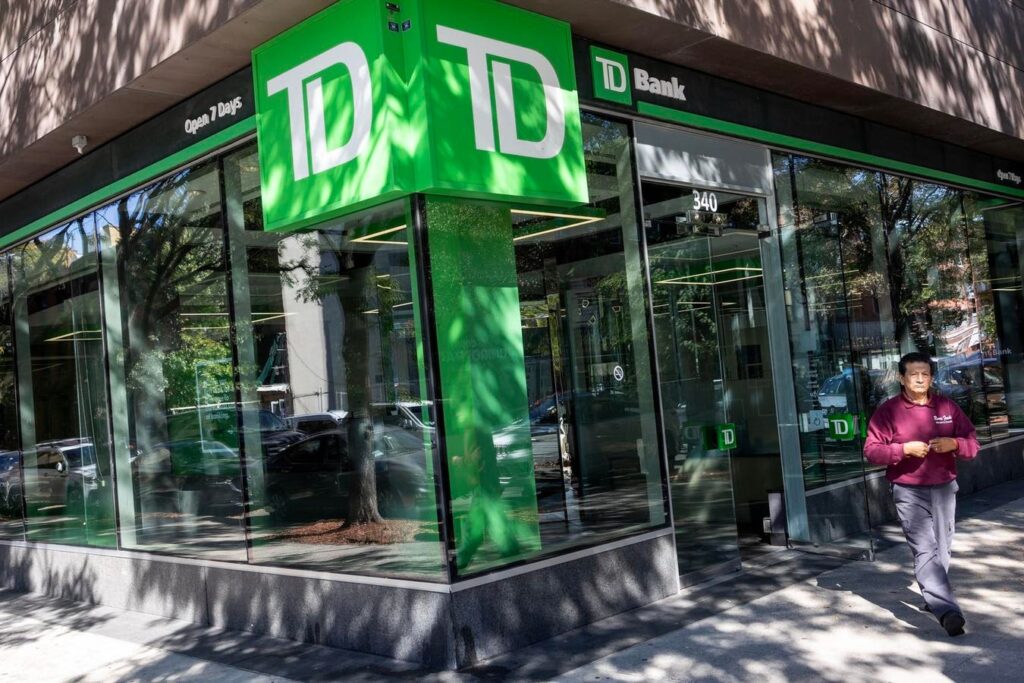In a significant turn of events for TD Bank, the Canadian-based institution pleaded guilty to extensive civil and criminal charges on October 11, 2024, marking a historic moment as it became the largest U.S. bank to do so for money laundering activities. The charges stemmed from violations of the Bank Secrecy Act, specifically related to the bank’s failure to adequately monitor a staggering $18.3 trillion in suspicious customer transactions between January 2014 and October 2023. As part of a settlement, TD Bank has agreed to pay a colossal total of $3 billion, including a $1.8 billion criminal penalty. This situation raises critical questions regarding accountability as TD Bank has committed to full cooperation with the ongoing investigations conducted by the Justice Department into its executives and employees involved in these money laundering offenses.
The implications of the settlement are broad and far-reaching. Bank executives are facing an uncertain future, particularly with the retirement announcement of TD Bank’s President and CEO, Bharat Masrani, planned for April 2025. Even as the bank navigates these investigative waters, there remains skepticism over whether high-ranking officials will face charges, as has been the case in similar high-profile banking scandals. The potential for additional criminal liability looms; if the bank fails to comply with the Justice Department’s requests or continues to uncover nefarious activities within its operational framework, it may find itself subjected to further criminal prosecution.
High-profile senators, including Ron Wyden and Elizabeth Warren, have expressed urgent concerns regarding TD Bank’s connections to a scheme laundering approximately $474 million in cash derived from fentanyl sales conducted by Chinese criminal syndicates. Their letter to Masrani highlights that from 2018 to 2021, TD Bank employees actively participated in this laundering plan, indicating a profound lack of oversight and compliance within the bank. Employees allegedly accepted bribes to facilitate the depositing of large sums of cash—a tactic that raises grave concerns about the efficacy of the bank’s Anti-Money Laundering (AML) operations. This situation underscores systemic failures, particularly when the heightened activity of such laundering schemes went unexamined by those responsible for monitoring and compliance.
The allegations point to concerning instances where TD Bank’s compliance executives took inadequate action despite clear indications of abuse and suspicious transactions. Reports flagging significant cascades of checks being purchased with illicit cash should have triggered immediate investigative processes. However, internal complacency, as signified by the lack of response from TD Bank’s Financial Intelligence Unit, not only allowed these activities to persist but also potentially facilitated further criminal enterprise in the realm of drug trafficking. The senators’ requests for transparency regarding actions taken against culpable executives reflect a wider apprehension about the bank’s commitment to reforming its internal governance and compliance structure in light of such a crisis.
Despite the public outcry and evident incriminating evidence, the Justice Department has yet to bring formal charges against any of the senior executives involved in these grave violations. Up until now, only lower-level employees, such as Leonardo Ayala, a minor-level employee from TD Bank’s Doral branch, have been held accountable for their actions. This approach to accountability raises significant alarm regarding whether the consequences for such serious offenses extend beyond lower ranks within the organization. There appears to be a pattern of leniency for senior banking figures, reminiscent of past financial scandals where vast penalties doled out to institutions did not translate into personal consequences for individual bankers.
The legal landscape surrounding banking misconduct is complex, as evidenced by previous cases like HSBC’s, where the bank faced a $1.9 billion fine for laundering money for drug cartels and other criminal entities yet did not see individual bankers prosecuted. The persistence of such patterns of accountability reflects a systemic dilemma that needs urgent attention, as the failure to prosecute high-level executives runs the risk of enabling further illicit activities and undermines the integrity of financial oversight mechanisms in the United States. As the Justice Department looks into the intricacies of TD Bank’s operations, stakeholders await clarity on whether this instance marks a turning point in holding senior financial leaders accountable for their complicity in facilitating money laundering and related atrocities.
In summary, the unfolding events concerning TD Bank present a stark reminder of the responsibilities financial institutions bear in combating money laundering and the threats posed by drug trafficking. With escalating scrutiny from lawmakers and the media, the case highlights the need for systemic change within banking practices to ensure that enforcement actions extend beyond institutional fines to include personal liability for those in positions of power. This scandal represents a crucial juncture for not just TD Bank but the broader banking sector as it grapples with the urgent need for stronger compliance and accountability mechanisms to tackle the nefarious forces that exploit its frameworks for illicit gains. As the Justice Department continues its investigations, the broader implications for the banking industry remain to be seen, particularly concerning how such events will shape future banking regulations and the enforcement of compliance measures against money laundering schemes.

